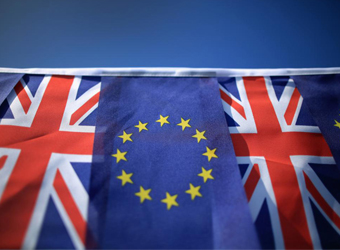The UK government is facing the threat of a defeat by rebel backbenchers when MPs vote on its flagship EU legislation.
Led by former Attorney General Dominic Grieve – a Conservative MP – the rebels want to insert a legal guarantee that MPs should get a vote on any final Brexit deal before it is finalised.
The amendment, which could be backed by Labour, will be debated later .
.
Theresa May said she was listening to MPs’ concerns, while Brexit Secretary David Davis has written to Tory MPs.
The government has no majority in the Commons and is vulnerable to a revolt by its MPs.
Ahead of the vote, Mr Davis wrote to all Conservative members on Wednesday morning promising “a meaningful vote” on Brexit.
He said there will be a vote in Parliament “as soon as possible” after an agreement with the EU is reached, adding: “Our entire approach to the bill has been to listen to MPs.”
The UK is due to leave the EU in March 2019, and the EU Withdrawal Bill is a key part of the government’s exit strategy.
Its effects include ending the supremacy of EU law and copying existing EU law onto the UK statute book, so that the same rules and regulations apply on Brexit day.
The bill is currently making its way through Parliament, where MPs from across the House of Commons have been trying to amend it.
So far it has emerged unscathed, but on Wednesday several rebels are lining up behind Mr Grieve’s bid to ensure a “meaningful vote” on any final deal agreed with Brussels.
The government has already offered a take-it-or-leave-it vote via a new act of Parliament on the final deal reached with Brussels.
But Mr Grieve said the bill as currently worded would allow ministers to implement the agreement themselves without consulting MPs.
For vulnerable governments, losing is potentially much more dangerous than the odd defeat for governments who are secure in the level of their support.
It’s in that context that the government faces a potential defeat on Wednesday on the Withdrawal Bill and must weigh up its best course of action.
The legislation has been grinding its way through the Commons for weeks. Tory rebels have threatened to vote against the government on a few different occasions.
This time however, with the rebellion led by one of the most unlikely troublemakers, the former Attorney General Dominic Grieve, they really do mean business.
And while the government today has sought to say ministers are listening, government sources say they are looking to do what they can to make peace – as things stand, it’s feasible that the prime minister will be beaten in the Commons on Wednesday. Yes, a possible defeat on the eve of the European Council.
Speaking on BBC Radio 4’s The World at One, Mr Grieve said his amendment to the bill would not prevent Brexit from happening, but suggested MPs should be able to send the government back to the negotiating table if they did not like the deal that was being put forward.
He said he would listen if ministers promised to come back with further measures at a later date but would not be backing down.
Asked about his chances of inflicting a government defeat, he said: “I think there are quite a few who may support me – I think enough, if this comes to a vote, to defeat the government.
“I think there is a real possibility that that will happen.”
Conservative Eurosceptics have reacted angrily to the threatened revolt.
Former Tory leader Iain Duncan Smith said: “There comes a moment when really grandstanding has to stop. Tying the government’s hands in the way that he would wish to tie them so early on is quite wrong.”
But Labour, which has tabled a similar amendment, signalled its backing for the change in the bill’s wording.
“Labour have always been clear that Parliament, not ministers, must have the final say on the UK’s withdrawal agreement with the European Union. This means both a vote on the draft deal and then primary legislation implementing the ultimate agreement,” said shadow Brexit minister Matthew Pennycook.
“Warm words and woolly concessions from ministers are not enough.”
Speaking in Paris, Mrs May said there were MPs “looking for reassurance” about the EU bill, adding that “of course we’ve been listening and talking to those colleagues”
source: BBC


